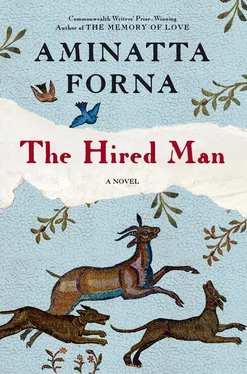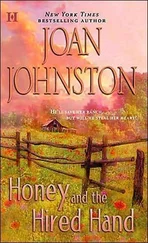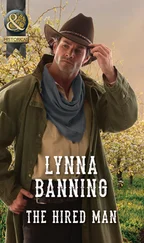‘What do you say? Best of three?’ said Conor.
‘Then you must go first.’ I handed the gun back to him. ‘As my guest.’ I turned and strode away from the target, putting another seventy-five metres between it and me. ‘We shoot from here.’
Conor followed and took up a position beside me. Two shots were slightly wide: a four pretty much on the inside line and a three. The last one he placed in the centre. He shrugged as he handed the rifle to me, but he looked pretty satisfied all the same. ‘Bit rusty still,’ he said.
I placed three shots in the centre. Behind me Matthew clapped. I could feel the heat of his excitement. Conor ignored him, instead he said, ‘What do you say, Duro? Three more?’
‘If you like.’
The first of Conor’s shots was a five, it lay towards the outside of the centre ring. A four at eleven o’clock. Another four at five
o’clock. He remained with his eye to the sight, assessing his score. Matthew snorted. Conor passed me the gun. Behind me Matthew willed his stepfather’s defeat, it was almost audible, vibrating through the air. I aimed, fired three times and lowered the rifle. Matthew ran forward to fetch the target.
Six shots. Conor’s three: one in the centre, the two fours at eleven and five. My score was the same: a five and two fours. One o’clock and seven o’clock. Even my five sat at exactly the same distance from the centre point as Conor’s, though on the opposite side of the small ring. All my three shots were the perfect mirror image of Conor’s. He peered disbelievingly at the target. He pushed his hair back off his forehead. ‘Would you look at that? Never seen the like. Some kind of fluke. Guess we call it a tie.’ Conor extended his hand.
I’ve had enough of Krešimir. When it comes, the end is a small thing, as endings often are. You have to look back to spot them, to see where things changed for good, the before and the after. I challenge him to a shooting match.
He makes jokes about my size, something he has never done before, the crossing of a line which has lain invisible and undeclared. During those years we ribbed each other about many things and not others, which surely is the nature of friendship. Now he does it in front of Andro, Miro and Goran. He enjoys it all, especially the way I have to endure it, suck it up, the only possible way to make them stop. When they give up trying to get a rise out of me, there is Krešimir with another joke, to set them off again.
Another day he brings up the wild boar from so long ago I have forgotten. He tells them I once pretended to have shot a boar, when all I’d shot was a tree. I feel myself get mad. I tell him to fuck off, I tell him I can outshoot him with my eyes closed.
Between Krešimir and me: dark channels of resentment. We are awkward around each other and act like we’re not; Krešimir watches me and I avoid his gaze. I spend as little time with him as possible, wonder if he knows about me and Anka and, if he does, how much. Surely it is no coincidence he has chosen to resurrect that particular incident from so long ago. I shot at the boar. Anka, practising ballet upon a rock, had jumped off and into my arms.
On the grass slope below the pine forest, the place where I shot my first deer. Alone because no one else is interested. I bring a home-made target. Five shots. If Krešimir’s nervous it doesn’t show, a pitying smile rests on his lips. What had seemed noble to me when I challenged him now seems pathetic. But condescension is an old trick of his.
I lose the toss. Krešimir shoots first and takes his time over it, repositioning himself between shots, deliberately making me wait. The five shots are good. Krešimir lays down his gun, folds his arms across his chest, pleased with himself. Mine is an old bolt-action rifle without a magazine. Four beats to expel the cartridge, insert and slide the bolt on a new bullet. The fifth to fire. I count each beat, a habit of mine. I reach twenty-five in as many seconds.
We walk towards the target and the nearer we get the greater Krešimir’s puzzlement grows: there should be ten bullet holes but there are only five.
In a moment he realises what I have done, which is to place every one of my five shots on each of his. A moment of stillness and then rage consumes Krešimir. He has a temper, it can break — just like that. He hides it well, so most people don’t see it coming, but over the years I’ve developed a sense for it, learned the triggers — so to speak. He hates to lose, to be made a fool of even more. I knew what I was doing.
Krešimir, being Krešimir, goes for the softest target: Anka’s old primary-school friend Sonja, come back to Gost on a visit with her family. Frizzy hair, a small waist and breasts, heavy thighs. She has the lips of an angel and thick-lashed hazel eyes, which contain the hint of something knowing. On the cusp of becoming a beauty and she knows it. Krešimir hangs around the house during her visits.
There was a time I suspected Krešimir was a closet queer. When we were younger it was his favourite taunt: fag, poof, gay. Now I think he simply despises women, as he despises all living creatures. Hard to imagine Krešimir tolerating the soiling nature of sex, the need to pleasure a woman. It’s true though that Krešimir enjoyed a certain success with women, or rather success with a certain kind of woman, the ones who were impressed by his air of superiority and scornful smile, even when he belittled them. Sonja is that kind. Krešimir makes an assignation with her. Imagine the girl’s delight, the edge it gives her over her friend Anka. He takes her to a café, buys her hot chocolate and reaches out his hand to play with her golden curls. When Anka and her mother are out one afternoon, he brings Sonja to their house and fucks her on Anka’s bed. Anka notices the smear of blood on the bedspread and puzzles over it, because she doesn’t have her period. She washes the cover when nobody is looking and hangs it out to dry. Afterwards, whenever Sonja comes to visit, Krešimir leaves the house; he ignores her in the street.
Sonja leaves without saying goodbye; she never writes again.
Gost cemetery: row upon row of the dead, asleep under the cypress trees. It’s the size of a football pitch, nearly full: the town authorities are searching for another site and trying to persuade people to be cremated. But we are the kind of people who love to mourn and anyway, who wants to prostrate themselves before an urn or throw themselves upon a vase? What we like is to build colossal black granite tombs, adorn them with votive candles and statues of the Virgin, plant them with carnations. The stone engraver in town advertises himself with an outsize gravestone in his front garden, that reaches up to the height of the first-floor windows. He’s done all right for himself. In Gost cemetery the old heroes have golden stars carved on their graves, though these days a great many stars have been scratched away or else are hidden behind a vase, strategically placed by the visiting widows. There are new heroes now. Some relatives have paid a vast sum to have the likeness engraved on the black granite itself, but mostly there are photographs of the young men, in their uniforms and caps, mounted on the gravestones. The photos are all retouched in exactly the same way, most likely in the same photographic studio, so the heroes all have very rosy cheeks and lips and light hair.
To the east of the cemetery, the Orthodox end, there are a few stars, but no other heroes, pink-lipped or otherwise. The graves here are untended. The grass is cut by the men who take care of the graveyard, probably the same ones who removed the old vases and faded flowers years back. The graveyard is just like Gost, with rows of tombs instead of houses and paths in the place of streets. There are different neighbourhoods for the rich and the poor and for people who worship in one church and people who worship in another. Everything you need to know about Gost is here in the cemetery.
Читать дальше












